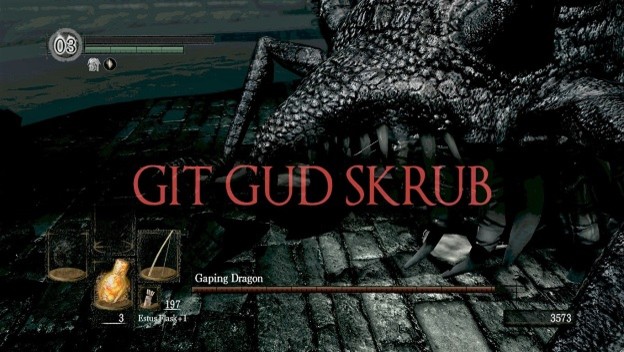We’re less than a week from the launch of Nioh , Team Ninja’s tough-as-nails action game inspired by Japanese history and mythology. Frequently billed as an Eastern-themed analogue to Dark Souls and Bloodborne (putting aside the fact that developer From Software is Japanese in origin), Nioh is the latest in a gaming sub-genre that has exploded in popularity over the last few years. So-called ” Souls likes” – the convention itself a nod to the “roguelike” genre – are the style du jour , attracting legions of developers and players alike. Games in the sub-genre typically revolve around punishing game mechanics and high difficulty meant to filter out the weak-willed.
There’s a certain allure to surmounting a difficult challenge. We’ve all experienced the rush of beating a level that had given us no end of trouble or stomping an annoying boss into the dirt. Even earning a Platinum trophy or maxing out your Achievements on an especially tricky game can provide its own thrill. It’s all about the pursuit of that visceral moment, when you jump out of your chair and scream “YES,” your voice a triumphant cry that makes your dog look at you sideways.
But when happens when your success turns from a badge of honor into arrogance? I’d like to believe that the vast majority of gamers don’t genuinely look down upon people who can’t beat difficult games, but there does seem to be a vocal minority hell-bent on positioning themselves above so-called “casuals.” It’s something I’ve taken to calling the “cult of prestige,” an imaginary community built around the notion that being good at video games makes you a better person. It’s a similar phenomenon to a mode of thought sometimes adopted by ivory tower scholars in academia; intellectualism is an important philosophy that can and should be cultivated except when its latitude is so diminished that it becomes exclusionary.
Uh, where was I? Video games. Right. My point is, the cult of prestige built around beating hard games is laced with toxic sentiment. It often leads to gatekeeping, which is when a member of a group or fanbase performs undue cross-examination on a member of the out-group to determine their right to enter the in-group. It’s trollish comments like “If you’re a real fan of this band, name every guitarist they’ve ever had,” or “Don’t play Dark Souls if you can’t git gud [sic]” that dampen the spirits of would-be fans who are perceived as somehow unworthy.

Shouldn’t gaming be for everyone? The advent of difficulty scaling and other features for increased accessibility is creating more ways to play, not less, and getting more people into gaming can only benefit our community. We shouldn’t be discouraging people from playing certain games simply to cultivate a platform of elitism. If you prefer to play Fire Emblem on Lunatic mode with permadeath on, go right ahead. How does knowing that someone else may choose to turn it off affect your experience? It shouldn’t, and if it does, you could stand to benefit from re-evaluating the reason why you game in the first place. Fostering respectful and enthusiastic conversation about our favorite games is a much better way to build a healthy community than leaving derisive comments on message boards.
